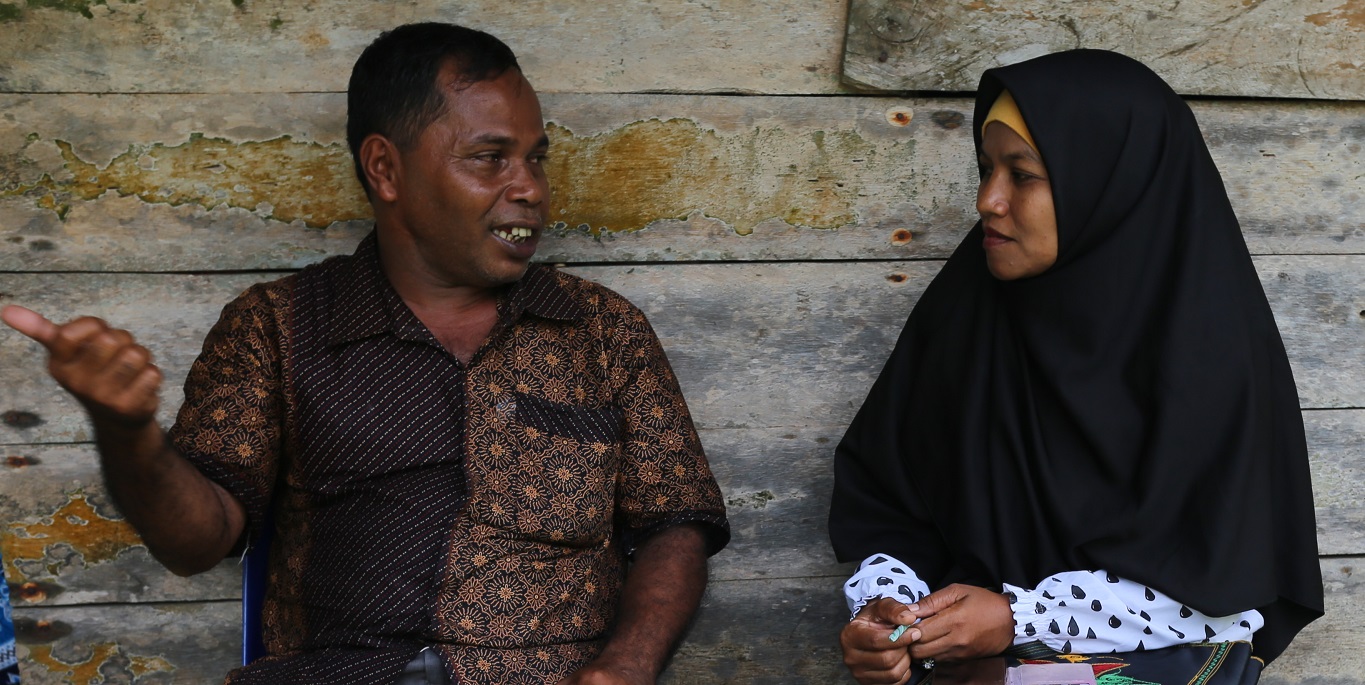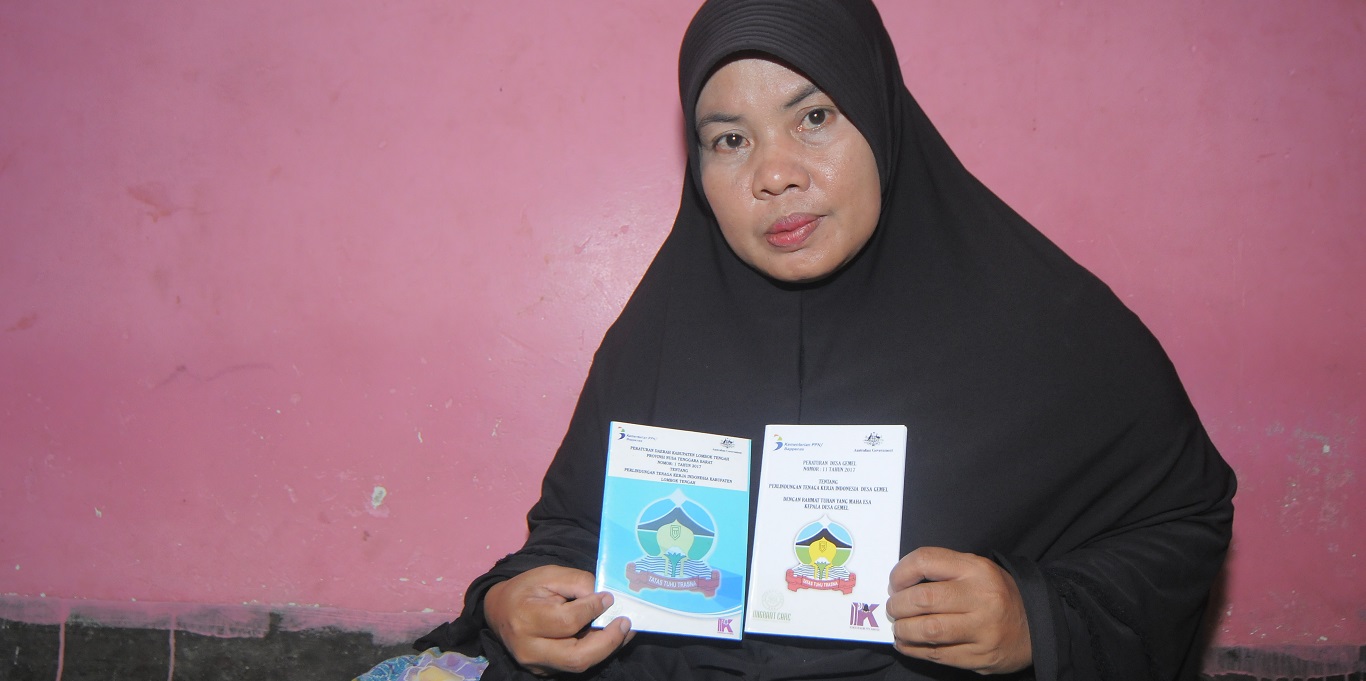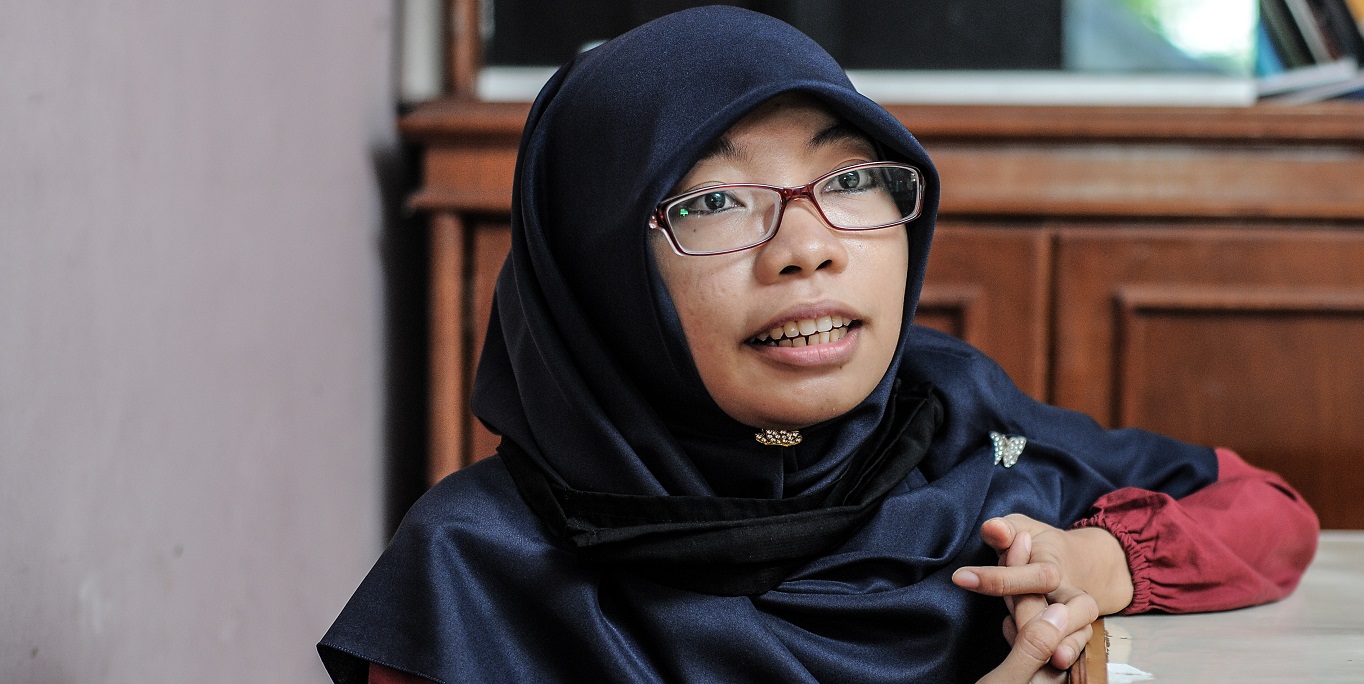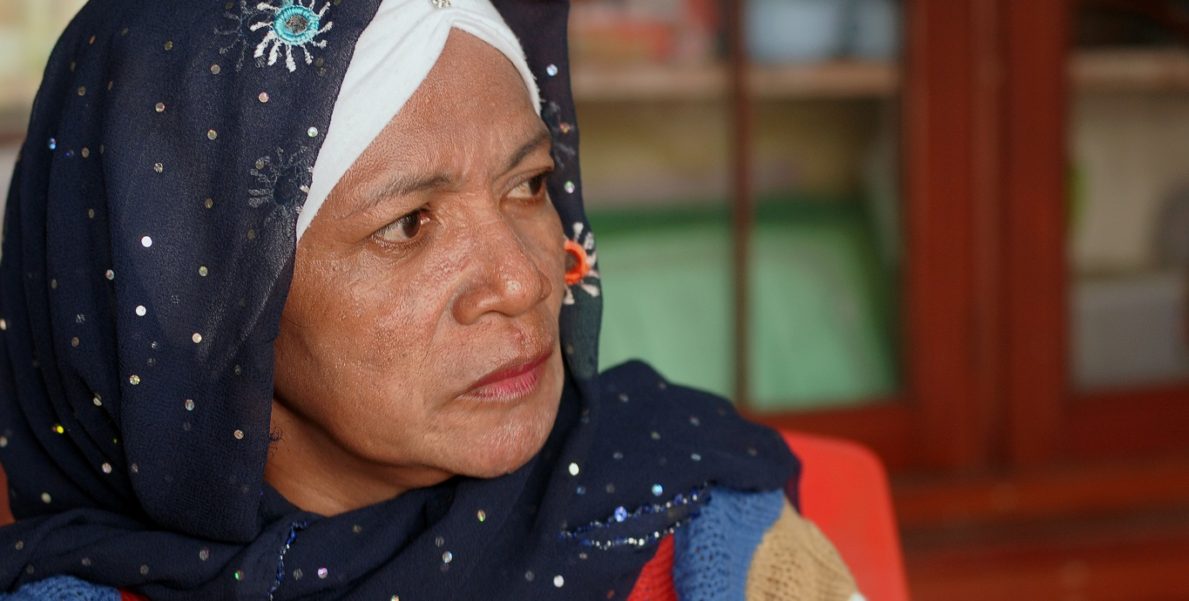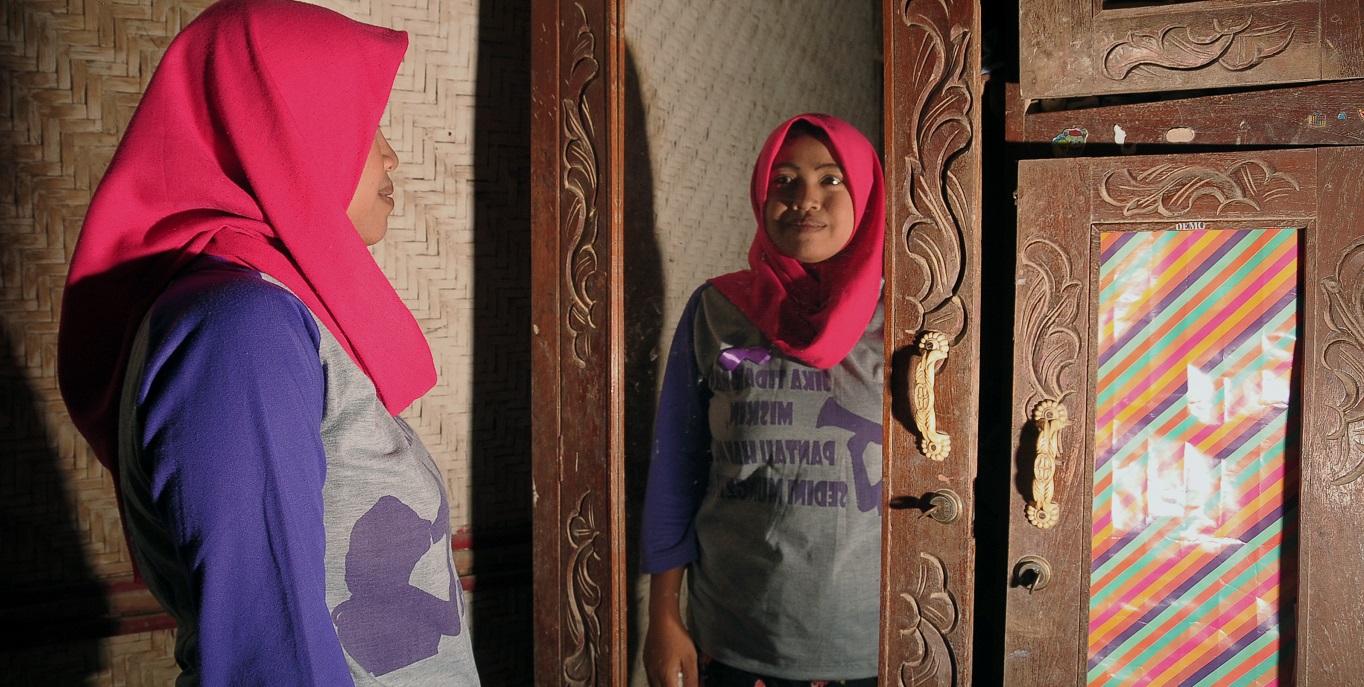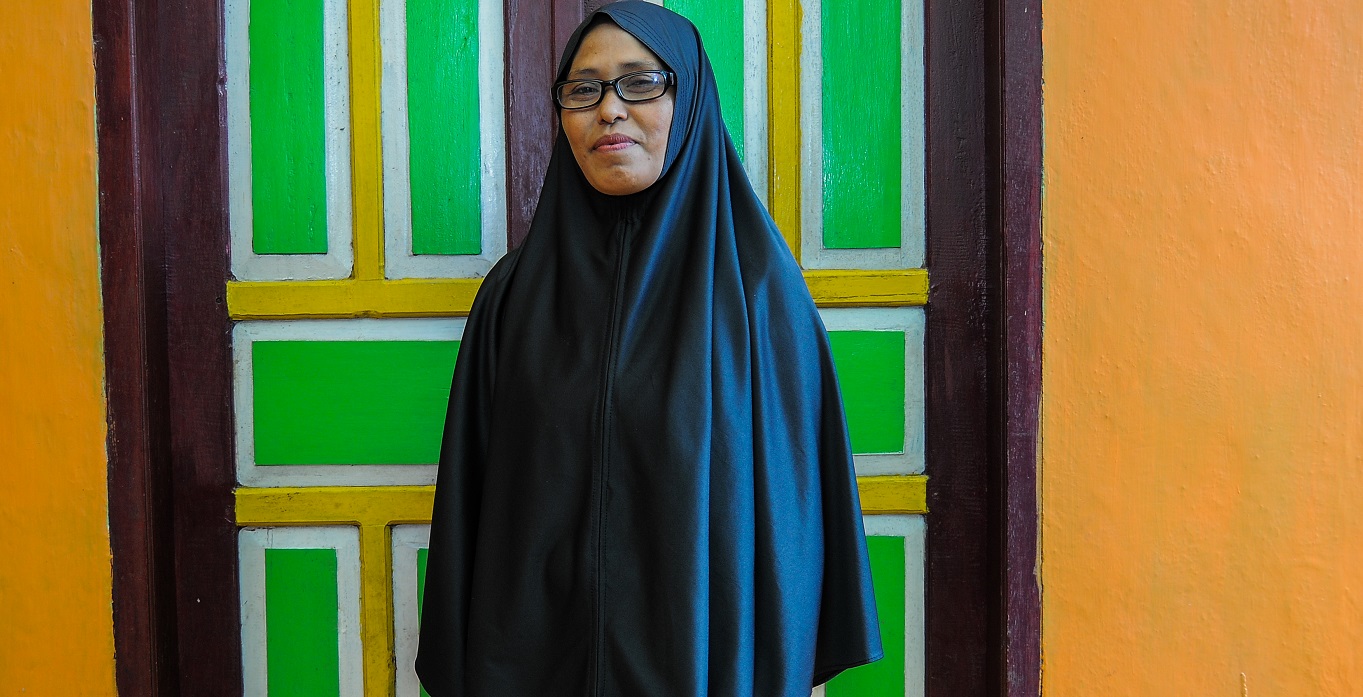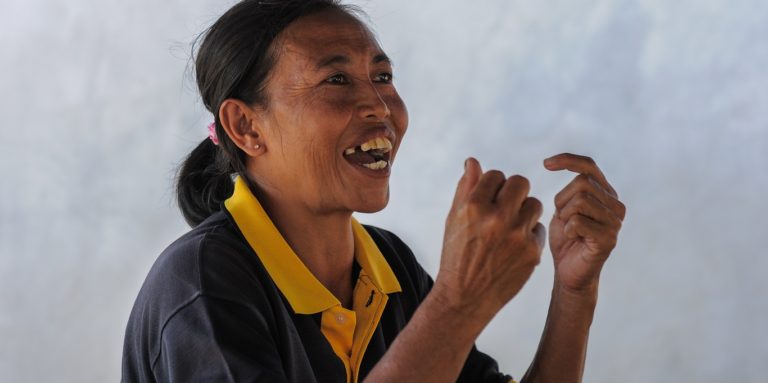Stories
When Talking about Sex Education is No Longer a Taboo
1 April 2017Penulis: admin
My name is Nurhasanah, but people called me Nur. I was born in Kampung Tengah in 1965. Now, I live in Pematang Kandis Village, Bangko District, Merangin Regency, Jambi. I work as a civil servant and become the Head of Women Empowerment at Family Planning Empowerment Office and Child Protection (BPPKBPA) of Merangin.
There have been many positive changes that I experienced after being involved and participating in the program of Sexual and Reproductive Health Rights (SRHR) from the Merangin Women’s Alliance (APM). I knew the APM since 2007 for assisting women victims of violence together and encouraged the Center for Integrated Service of Women Empowerment and Children (P2TP2A) in Merangin.
The most fundamental change that I experienced was my awareness and understanding of sex education that was once taboo to talk about. Apparently, reproductive health education is important given to all elements clearly, so that there is no wrong interpretation about sex education.
While involving in the SRHR program, I have been following the activities held by APM since 2015, such as educational activities, regular discussions of the Multi Stakeholders Forum and Women Public Official Forum. I had the opportunity to become a participant of The Strengthening Multi Stakeholder Forum (FMS) Workshop in Pematang Siantar, North Sumatra on 22-23 December 2016 which was organised by PERMAMPU.
I feel that the APM is different from other institutions. They work with the issue of women’s empowerment consistently, such as assistance of women and children victims of violence to alleviate women from poverty and the fulfillment of HKSR.
Through regular discussions in women forums of public officials and FMS, I acquired an abundance of new knowledge and understanding. Now I am getting used to the terms of sex, sexuality, gender, unwanted pregnancy, and male and female reproductive organs. Through this APM-initiated forum, I and other stakeholders met, communicates, talked about, and responded to something in an effort to achieve the common goal of playing a role in improving the effectiveness of public services, in particular services to women victims of violence and reproductive health rights.
When I was in the office of the district head as the secretary of Family Welfare Development, I often went to the sub-district and villages to provide health education programs. At that time I did not dare to talk things related to sex and reproductive organs, even though the presentation material was about reproduction, family planning, and maternal dan child health. It was because I still believe that it was taboo to talk in public. But after I joined APM with the SRHR program, I became aware and understood that reproductive health education is important.
In addition, after I was involved in the gender awareness training and SRHR organised by APM, my views on the issues of SRHR and the facts related to sexual violence and child marriage are becoming more objective. Apparently as parents, providing only material living is not enough, but also more importantly is to accompany and become friends for our children. It is important to build good communication. Therefore, if a child has problems related to their sexual life and reproduction, they will feel comfortable and can communicate openly to us as their parents. I implement this knowledge to myself in the family and in my work environment.
In the future, I hope that APM can develop this SRHR Program more widely to many villages and other areas in the city, so that information about sexual and reproductive health will bring good benefits to women.
Written by: Sri Lestari



